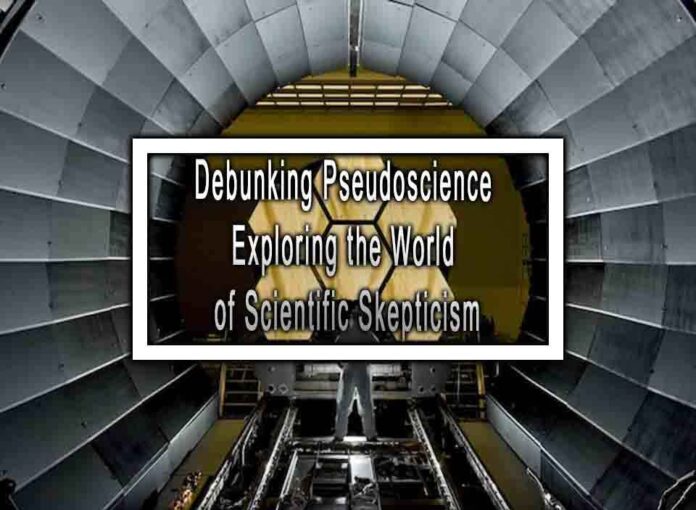Debunking pseudoscience and promoting scientific skepticism are crucial endeavors to ensure that public discourse and decision-making are based on evidence, reason, and critical thinking rather than unsupported claims and misinformation. Here’s a closer look at how scientific skepticism operates and how it helps in debunking pseudoscientific ideas:
1. What Is Scientific Skepticism?
- Scientific skepticism is an approach that questions the validity of extraordinary claims and pseudoscientific beliefs. It is not a denial of science or an outright dismissal of new ideas but a cautious and evidence-based evaluation of them.
2. The Role of Empirical Evidence:
- Scientific skepticism emphasizes the importance of empirical evidence. Claims and hypotheses should be tested through rigorous experimentation and observation, and results should be replicable and subject to peer review.
3. Peer Review and Expert Consensus:
- Scientific skepticism relies on the peer-review process, where research is assessed and critiqued by experts in the field. Consensus among experts helps validate scientific findings.
4. Falsifiability:
- A fundamental aspect of scientific skepticism is the concept of falsifiability. Claims and hypotheses must be formulated in a way that allows them to be tested and potentially disproven through experimentation or evidence.
5. Occam’s Razor:
- Occam’s Razor, a principle of simplicity, suggests that when evaluating competing hypotheses, the simplest explanation that fits the evidence is likely the most accurate. Scientific skepticism encourages the preference for simpler, more parsimonious explanations.

6. Logical Fallacies:
- Scientific skeptics are trained to recognize and identify logical fallacies, which are common in pseudoscientific arguments. Examples include the appeal to authority, the ad hominem attack, and the slippery slope fallacy.
7. Critical Thinking:
- Scientific skepticism promotes critical thinking skills, encouraging individuals to question claims, consider alternative explanations, and demand solid evidence before accepting extraordinary or implausible assertions.
8. Debunking Pseudoscience:
- Debunking pseudoscience involves critically examining popular but scientifically unsupported ideas, such as astrology, flat Earth beliefs, homeopathy, and conspiracy theories. Skeptics use evidence-based arguments to refute these claims.
9. Promoting Scientific Literacy:
- Scientific skeptics aim to improve public understanding of science and critical thinking. They advocate for science education, media literacy, and the dissemination of accurate information.
10. Ethical Considerations:
- Ethical considerations are important in scientific skepticism. Skeptics aim to engage in constructive dialogue rather than resorting to ridicule or personal attacks. The goal is to foster understanding and debunk pseudoscientific beliefs with respect.
11. Debunking Misinformation:
- Scientific skeptics play a crucial role in debunking misinformation, especially in the age of the internet and social media. They challenge the spread of false claims and conspiracy theories that can have real-world consequences.
In summary, scientific skepticism is a rational and evidence-based approach to evaluating claims and ideas. It serves as a valuable tool for debunking pseudoscience, promoting scientific literacy, and maintaining the integrity of the scientific method. By encouraging critical thinking and a reliance on empirical evidence, scientific skepticism contributes to a more informed and scientifically literate society.











